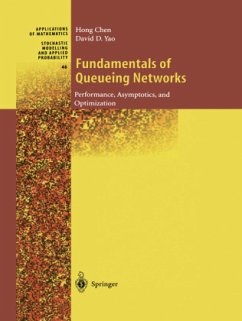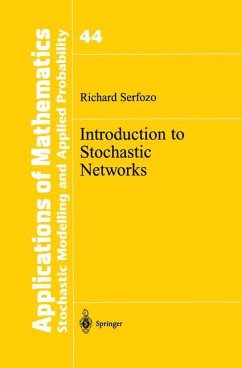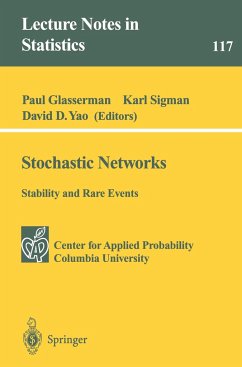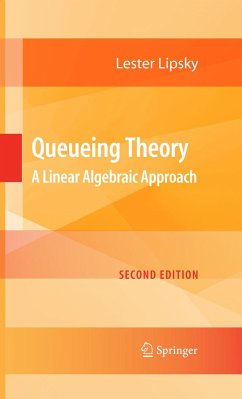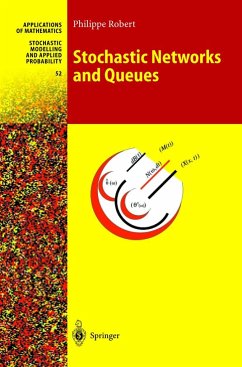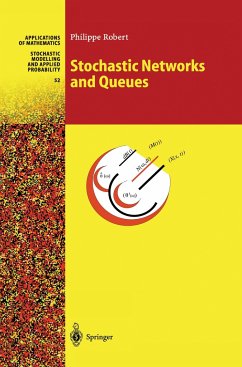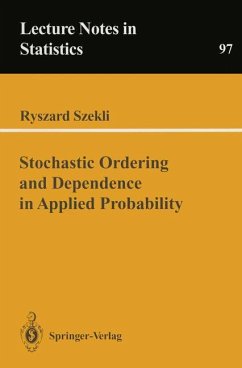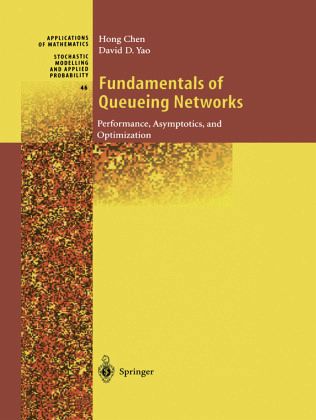
Fundamentals of Queueing Networks
Performance, Asymptotics, and Optimization
Versandkostenfrei!
Versandfertig in 6-10 Tagen
47,99 €
inkl. MwSt.
Weitere Ausgaben:

PAYBACK Punkte
24 °P sammeln!
The objective of this book is to collect in a single volume the essentials of stochastic networks, from the classical product-form theory to the more re cent developments such as diffusion and fluid limits, stochastic comparisons, stability, control (dynamic scheduling) and optimization. The selection of materials inevitably is a reflection upon our bias and preference, but it is also driven to a large extent by our desire to provide a graduate-level text that is well balanced in breadth and depth, suitable for the classroom. Given the wide-ranging applications of stochastic networks in recent...
The objective of this book is to collect in a single volume the essentials of stochastic networks, from the classical product-form theory to the more re cent developments such as diffusion and fluid limits, stochastic comparisons, stability, control (dynamic scheduling) and optimization. The selection of materials inevitably is a reflection upon our bias and preference, but it is also driven to a large extent by our desire to provide a graduate-level text that is well balanced in breadth and depth, suitable for the classroom. Given the wide-ranging applications of stochastic networks in recent years, from supply chains to telecommunications, it is also our hope that the book will serve as a useful reference for researchers and students alike in these diverse fields. The book consists of three parts. The first part, Chapters 1 through 4, covers (continuous-time) Markov-chain models, including the classical Jackson and Kelly networks, the notion of quasi-reversible queues, and stochastic comparisons. The second part, Chapters 5 through 10, focuses on Brownian models, including limit theorems for generalized Jackson net works and multiclass feedforward networks, an in-depth examination of stability in a Kumar-Seidman network, and Brownian approximations for general multiclass networks with a mixture of priority and first-in-first-out disciplines. The third part, Chapters 11 and 12, discusses scheduling in both queueing (stochastic) and fluid (deterministic) networks, along with topics such as conservation laws, polymatroid optimization, and linear pro gramming.





